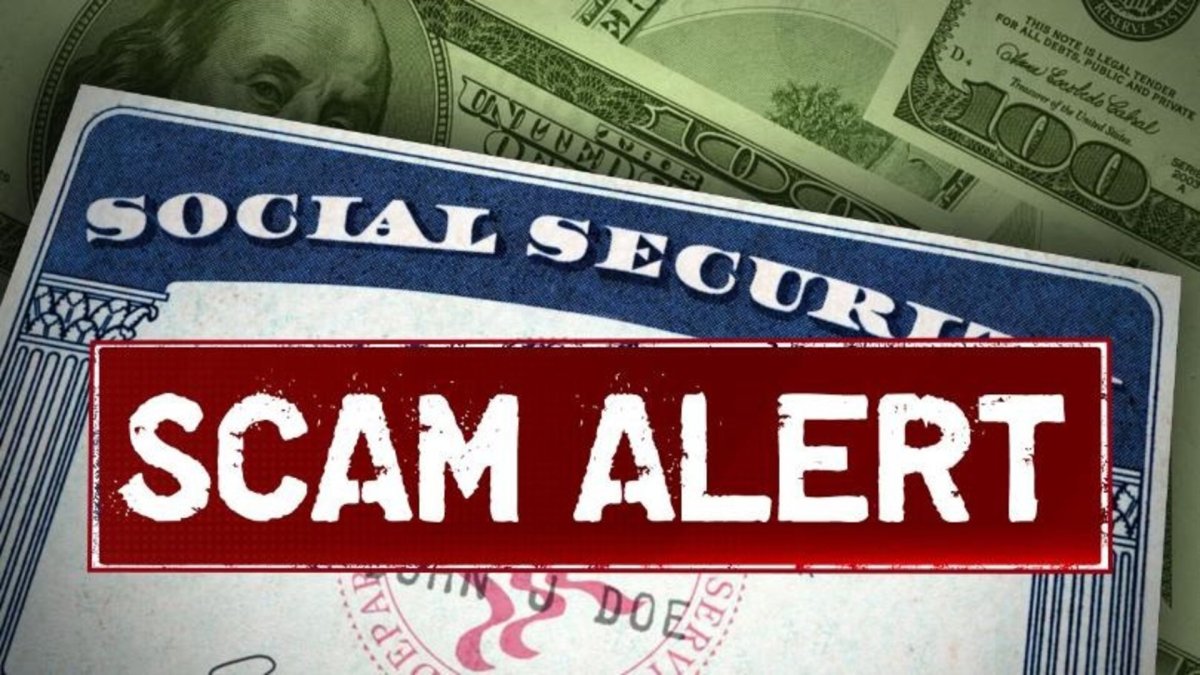
The numbers are staggering, and they're getting worse. Seniors lost $4.8 billion to scammers in 2024, according to the FBI's report. That represents real people—your neighbors, friends, maybe even family members—who've had their financial security stripped away by increasingly sophisticated criminals.
Now there's a new scam making the rounds that's particularly insidious. The Social Security Administration's Office of the Inspector General has issued an urgent warning about fake letters that appear to come from the US Supreme Court itself. These aren't your typical poorly written phishing emails. These documents look official enough to fool even the most cautious recipient.
The fake Supreme Court letter: A masterclass in deception
The new scam presents itself as an official-looking letter identified as a “certificate” on fake US Supreme Court letterhead using forged signatures of US Supreme Court Chief Justice John Roberts and Associate Supreme Court Justice Sonia Sotomayor.
The letter creates a sense of urgency by claiming the recipient is a “primary suspect” in legal proceedings and criminal charges. It falsely states that both the Social Security Administration and the incorrectly named “Drug Enforcement Agency” have found evidence that the person's identity has been stolen and their Social Security number compromised.
But here's where it gets really convincing and dangerous. The letter claims the Supreme Court has requested that financial institutions freeze all of the recipient's assets and demands “full cooperation” with the US Department of the Treasury. Recipients are told they cannot maintain more than $10,000 in any bank account or hold between $80,000-$100,000 in investments.
"On every level this letter is completely false"
The scammers then instruct victims to contact them immediately to resolve the situation—which, of course, involves sharing personal information and sending money.
Also read: Protect your inbox: How to spot and avoid USPS scam texts
Why Social Security scams hit seniors hardest
More than 70 million people rely on Social Security benefits each month. This massive population, combined with the fact that many recipients are older and may be more trusting of official-looking documents, makes Social Security the perfect target for scammers.
Social Security Administration is still the top government agency targeted by scammers. The numbers prove it: government imposter scam losses for 2024 exceeded $577 million as of November.
The financial impact on seniors is particularly devastating. For those aged 80 and upwards, the median loss was $1,674, money that retirees on fixed incomes simply can't afford to lose.
Scam losses are skyrocketing
Total losses among older Americans to imposter scams amounted to $700 million in 2024—a more than fivefold increase from $122 million in 2020. The criminals are getting better at what they do, and the stakes keep rising.
The red flags that should set off alarm bells
Real government agencies, including the Social Security Administration and the Supreme Court, will never:
- Threaten you with immediate arrest or legal action via mail
- Demand immediate payment to resolve supposed problems
- Ask for personal information like Social Security numbers through unsolicited contact
- Request payment through gift cards, wire transfers, or cryptocurrency
- Claim your assets have been frozen without proper legal documentation
Also read: Are your loved ones safe online? A guide to protecting seniors from cyber threats
The Supreme Court, in particular, doesn't send letters to individual citizens about Social Security matters. That's simply not how the judicial system works.
Beyond the Supreme Court scam: Other tricks targeting your benefits
While the fake Supreme Court letter is grabbing headlines, scammers are constantly evolving their tactics. Recent Social Security-related scams include:
Fake COLA increase notifications: The Social Security Administration warned in December that seniors were being increasingly targeted with romance and COLA-related scams.
Investment fraud: This remains the most financially damaging type of fraud targeting seniors. Investment scams lead to the highest financial losses for adults aged 60 and above, costing this age group a staggering $404 million in 2022 alone.
Tech support scams: These often begin with pop-up messages claiming your computer is infected, then escalate to requests for remote access and eventually, your banking information.
Protecting yourself: Your defense strategy
You're not powerless against these scams. Here's your action plan:
Verify before you worry: If you receive any suspicious communication claiming to be from a government agency, don't use the contact information provided in the letter or email. Instead, visit the official website or call the number you know is legitimate.
Take your time: Scammers create false urgency to prevent you from thinking clearly. Real government issues aren't resolved in minutes or hours.
Trust your instincts: If something feels wrong, it probably is. There's no penalty for being cautious.
Keep your information private: Your Social Security number, Medicare number, and banking information should never be shared with unsolicited callers or email contacts.
Also read: Protect Your Wallet: The New Sneaky Scam Fraudsters Use to Pose as Government Officials!
Did you know?
The Social Security Administration has an official scam reporting page at ssa.gov/scam where you can verify whether a communication is legitimate and report suspicious contact.
What to do if you've been targeted
If you receive a suspicious letter, email, or phone call:
- Don't respond or click any links
- Report it immediately to the Social Security Administration at ssa.gov/scam
- File a complaint with the Federal Trade Commission at reportfraud.ftc.gov
- Tell someone you trust—a a family member, friend, or neighbor who can help verify whether the communication seems legitimate
If you've already provided information or money:
- Contact your bank immediately to freeze accounts and monitor for unauthorized transactions
- Call the credit bureaus to place a fraud alert on your credit report
- File a formal fraud report with your local police
- Document everything—save copies of all communications and keep records of your reports
Read next:
- Scammers exploit public confusion around tariffs, immigration, and drug policy
- A new Social Security email scam is hitting seniors—here’s what the SSA says to protect yourself and your loved ones
- Medicare scams are spreading fast—here’s how to protect your benefits before fraudsters strike
Have you or someone you know received a suspicious letter, call, or email about Social Security? What did you do? Do you have tips for spotting scams or stories to share?






